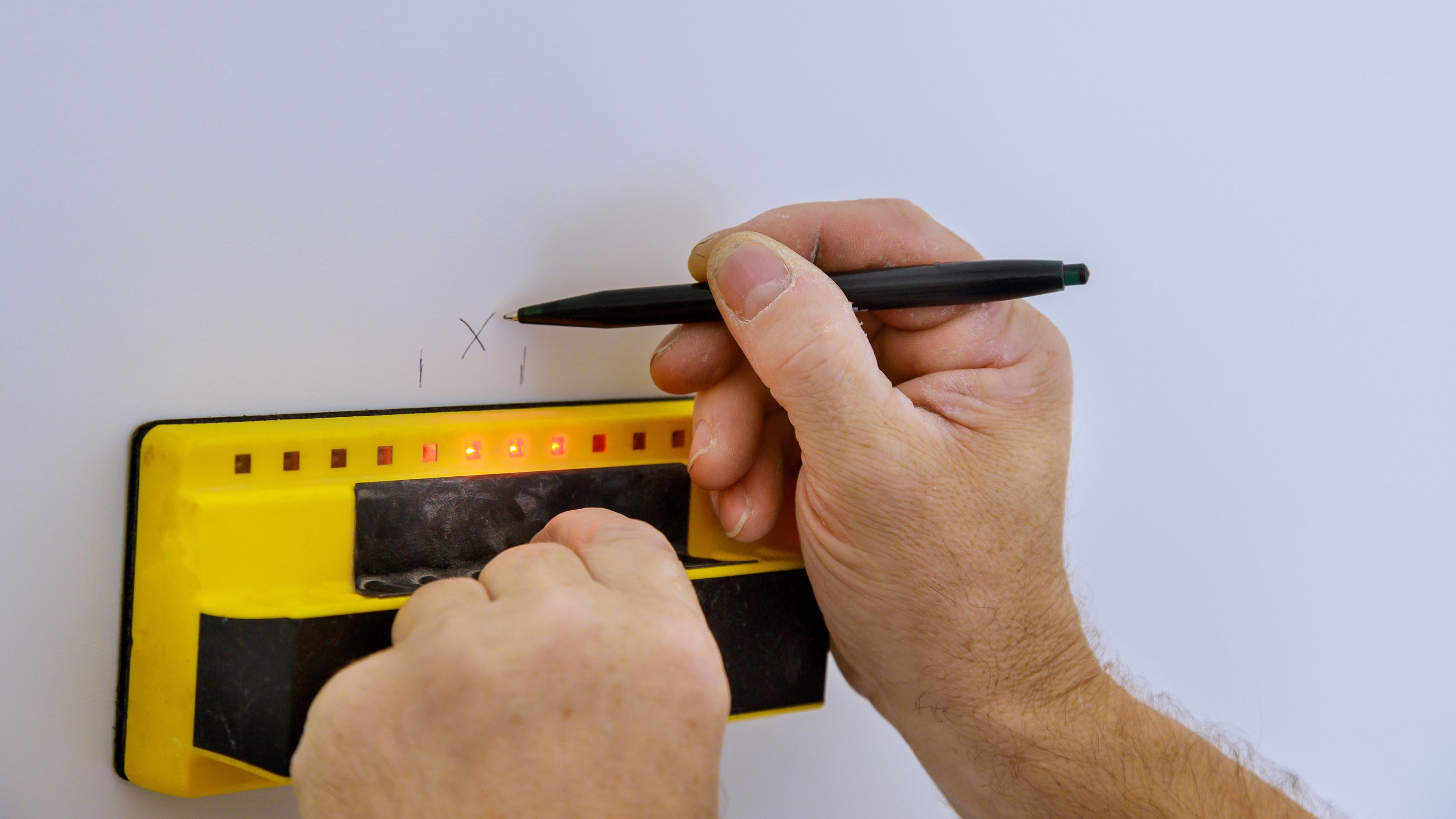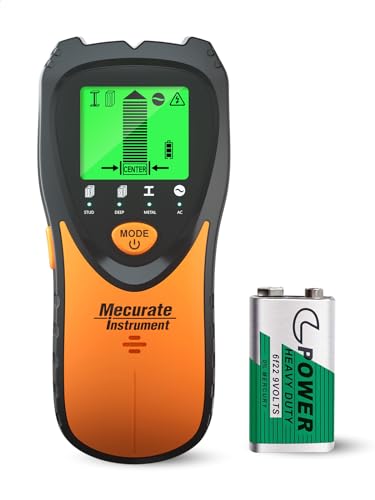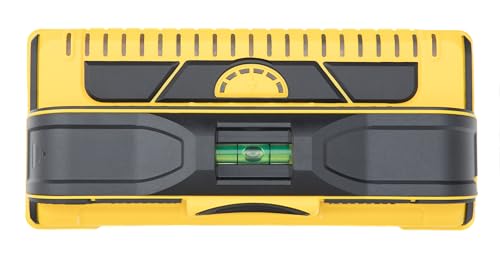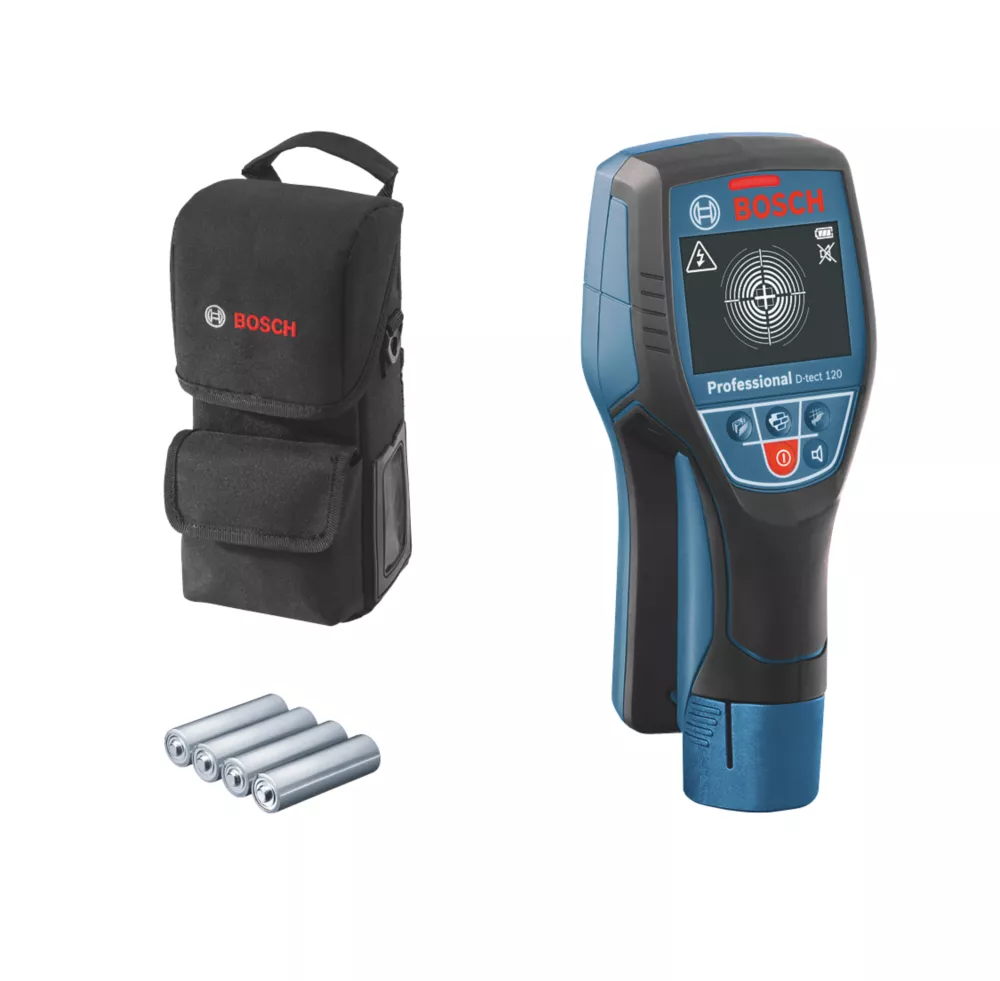This £20 Amazon bestseller gives me peace of mind when hanging pictures and more — here's why I think everyone should have one in their toolkit
It's perfect for both novice DIYers and renovators alike


I'm going to say it, every homeowner needs a stud finder in their toolkit. Even if you aren't an avid DIYer or planning any renovating, a stud finder is an incredibly useful tool to have.
Relatively inexpensive, like this bestselling Mercurate Stud Finder I have in my kit, which is less than £20 on Amazon, a stud finder will help you avoid the potential hazards that can come along with even simple tasks, like hanging pictures on a wall.
While there are a handful of tools that every homeowner should have, here's why I think a stud finder should be added to that list.

With a very reasonable price tag, this Amazon bestseller also has more than 2,500 5* reviews.

Thanks to it's wide display, and simple indicators, this stud finder is ideal for novices, and has more than 3,000 5* reviews.

For those wanting something more sophisticated (and are prepared to pay the higher price), level up to this radar scanner.
Do I really need a stud finder?
If you hang or attach things on your walls, whether a picture, clock or piece of furniture, a stud finder is a worthy investment to ensure you can do that accurately and safely.
Here are three main reasons you should add a stud finder to your toolkit.
1. Sidestep potential hazards with a stud finder
Blindly drilling into a wall can be extremely hazardous. One wrong move and you could puncture a pipe or hit a live wire. Not only can this pose a serious safety issue, but it could also cause significant damage to your home that is costly to repair.
By using a stud finder, you can locate and avoid those potential dangers and find the safe spots to drill. And in my opinion, that peace of mind is priceless!
Sign up to our newsletter for style inspiration, real homes, project and garden advice and shopping know-how
2. Stud finders are suitable for simple DIY and more complex renovation

Knowing what lurks behind the surface of your walls is crucial, whether you're just doing some simple DIY, like hanging pictures, or fixing furniture to the wall, to more complex renovating tasks, like knocking down internal walls.
This is where a stud finder wall scanner comes in very handy. Depending on the gadget you choose, they can not only identify wall studs, but also live wires and pipework.
From a DIY perspective, identifying where the studs are can help accurately ensure you attach heavy wall hangings in a safe and secure way, and avoid inadvertently hammering a nail or picture hook into a pipe or wire.
If you are planning on knocking down or altering an internal wall, being able to identify what might be going on behind the wall's surface will help you to understand what needs to be decommissioned before the work can be undertaken safely.
3. They can be used to detect multiple materials
Most stud finders fall into one of two categories - electronic or magnetic. Electronic ones work by sensing changes in density, while magnetic ones use a magnet to detect metal fixings in the wall. For ultimate accuracy, radar and ultrasonic scanners are also available, but these tend to be professional grade and come with a hefty price tag.
Your more budget-friendly stud finders can detect wood, metal and wires, while more expensive ones can also detect plastic pipework and may be able to detect deeper into the wall.
What are the pros and cons of a stud finder?
As with any tool, there are pros and cons you should be aware of before you buy one. But fortunately the pros outweigh the cons, when it comes to a stud finder.
In the pro column, being able to identify wall studs, pipes and wires, means you can drill nails or hammer fixings into the wall with confidence, and without inadvertently causing any damage. They can also be inexpensive to buy, and are relatively simple to use.
In terms of cons, accuracy can sometimes be challenging to get a handle on, so it's important you read and follow the specific instructions for your stud finder before you use it to ensure it's calibrated correctly. Wall thickness can also be a challenge, and some scanners can detect deeper than others.
If you've got some DIY renovation on your wish list, it's also worth picking up these other under-£30 tools that all renovators should have, including the one that many homeowners have never heard of!

Sarah Handley is Ideal Home’s Renovation Editor. She joined the team full time in September 2024, following three years of looking after the site's home finance content. As well as all things renovation, Sarah also looks after our Home Energy content, which covers all aspects of heating and insulation as well as tips on how homeowners can reduce their energy usage. She has been a journalist since 2007 and has worked for a range of titles including Homebuilding & Renovating, Real Homes, GoodtoKnow, The Money Edit and more.